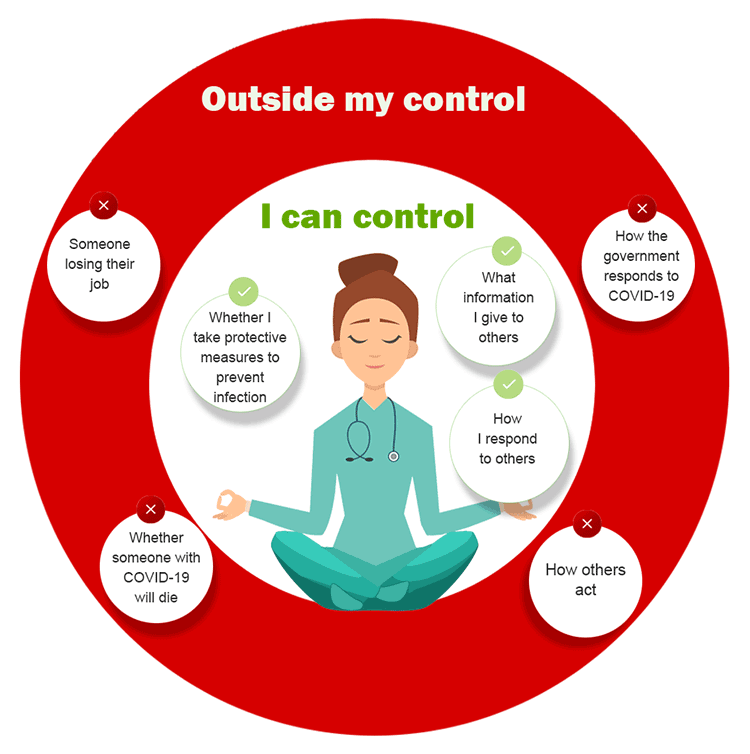What is stress?

During the COVID-19 pandemic, you might experience immense pressure and stressors.
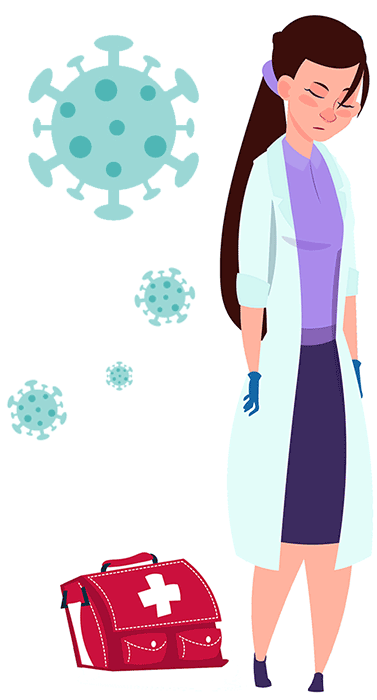
- Unknowns about exposure to the virus when dealing with patients.
Stressors due to high work demands and strict bio-security measures
- Insufficient training on infection, prevention and control measures.
- Unclear, contradictory or frequently changing response guidelines.
- Lack of personal protective equipment (PPE), tools and infrastructure needed to perform your job safely.
- Physical strain from wearing PPE.
- Lack of performance feedback and insufficient support or reward for efforts.
- Tension between wishes of patients or families and public health recommendations.
- Safety protocols that may prohibit providing comfort or support to individuals.
- Remaining in a state of hyper-vigilance and awareness.
- Witnessing higher than usual suffering and death, including loss of colleagues.
- Limited opportunities for rest and basic self-care activities.
Stressors related to fears
- Fear of infection, fear of infecting others, including family members, or of falling ill and dying.
- Fear or guilt from not being able to work if quarantine is required.
- Fear of being dismissed from work, and fear of reliving the experience of a previous epidemic.
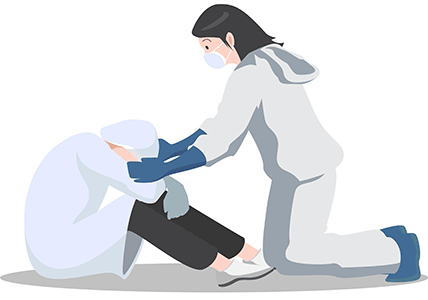
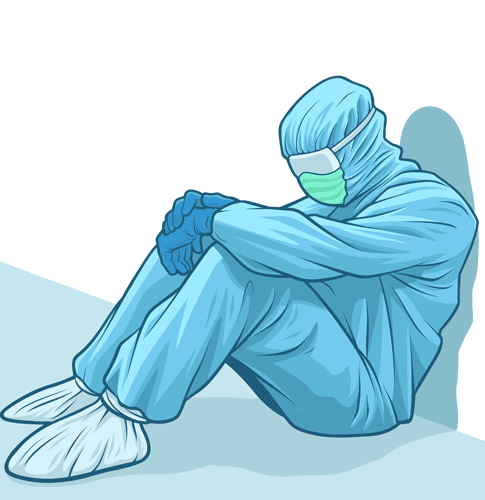
- Ongoing personal stressors outside of work, like childcare and transportation.
Consequences of stressors due to COVID-19 on personal and family life
- Financial burdens and livelihood impacted (of frontline workers not being paid or receiving salary or family members losing jobs).
- News and information overload, including spreading of rumours and unverified information.
- Social stigma from family members and the community at large, including harassment, discrimination and violence due to fear and mistrust. Family of frontline workers may also experience stigma and discrimination from the community at large.
Due to the reasons mentioned above, you can feel stressed at times. Even though this is an automatic reaction to adversity, not dealing with the stress you're feeling in a healthy way might cause additional psychological problems.
How does stress affect you?
Prolonged exposure to stress or being exposed to excessive stress, even for a relatively short period of time, has many harmful consequences on the emotional and mental well-being of frontline workers. The harmful consequences of prolonged exposure to stress can include:
- diminished quality of the care you deliver (you may be more prone to accidents and mistakes, and your ability to make decisions may be impaired);
- onset of depression and anxiety disorders;
- increased risk of post-traumatic stress disorder;
- relapse or worsening of depressive or anxiety disorders;
- substance use disorders or relapse;
- burnout (an occupational condition where workers feel emotionally exhausted and drained of energy, disengaged from their job or feeling cynical and negative towards it; inadequate at their job with feelings of low personal accomplishment or professional efficacy);
- increased risk of suicide.
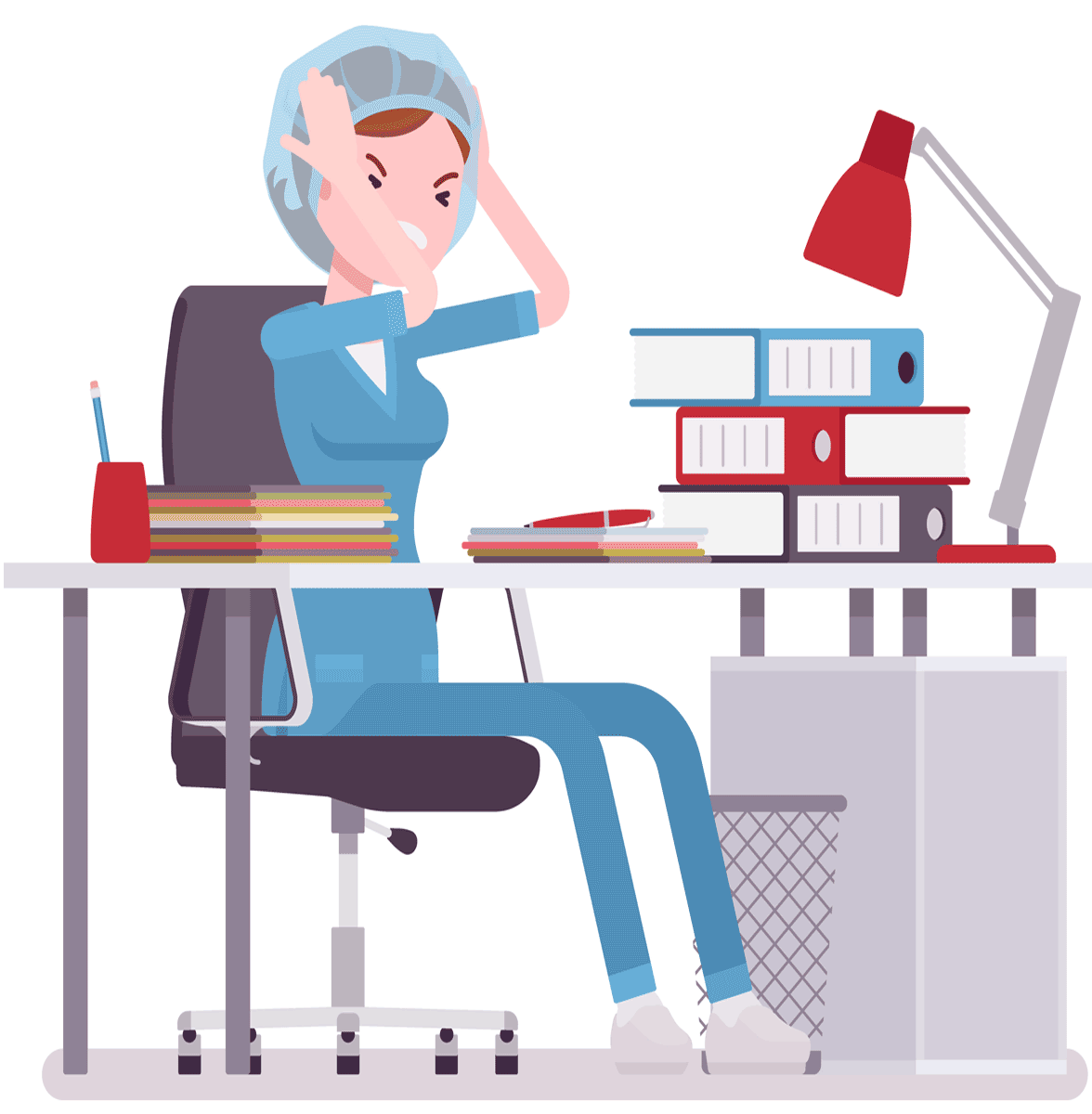
So, what can you do?
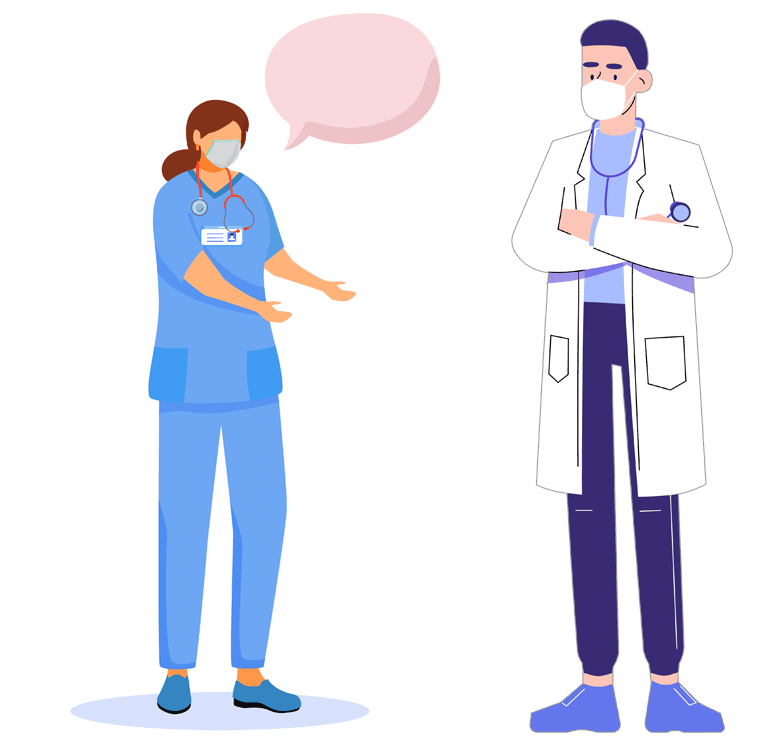
- Communicate openly with your supervisor, ask for the support you need, and familiarize yourself with your rights in order to advocate for yourself.
Advocate for yourself
- Communicate your need for work adjustments, such as a flexible schedule or being rotated to less stressful tasks.
- If it is lacking, request the PPE you need in addition to any additional training you may feel that you need.
- Ask for clarification on your rights to compensation and treatment in case of COVID-19 infection, and for physical and legal protection from harassment and violence if you feel unsafe at work.
- Note that you and your colleagues may not be able to make such requests to your supervisor on an individual basis (e.g. due to hierarchical differences or fear of losing your jobs, etc.). In such circumstances, it may be helpful to appoint an advocate such as a trusted senior colleague or union representative or ombudsmen.
Contemplate your accomplishments
- Choose a time of day in which you may have 10‒15 minutes of uninterrupted time.
- Set an alarm for that time.
- During this time, think of three things that you have accomplished during the day.
- Write those three accomplishments on a piece of paper.
- Try to keep up celebrating three accomplishments every day.

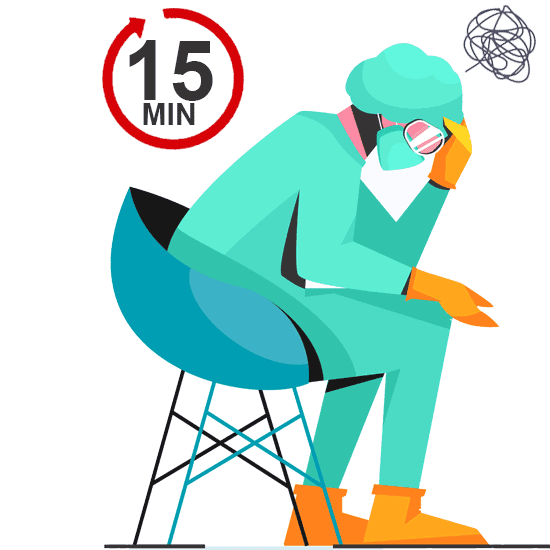
Postpone your worries
Everyday, try to set some time aside to worry. That’s right, it’s called worry time. You decide when and for how long, 15 minutes is a good start, but you can take less time. You can begin by trying for 15 minutes or less.
- When you start to feel overwhelmed with excessive worries, for example, before going to bed or in the middle of the night, tell yourself: “I will worry about this tomorrow during my worry time.”
- You can write some words on a piece of paper on your nightstand. Then let it go.
- Ground yourself and breathe.
- If the anxious thoughts come back, tell yourself: “Thank you mind, I will get worried about this tomorrow during my worry time.”
- The next day, worry about what was bothering you for the allotted time.
- What do you notice? Are you as worried about this as you were last night?
Know your limits
If you are feeling powerless to help others, it can be helpful to identify those problems you can do something about and those you cannot. Forgive and be gentle with yourself if you are unable to help in a particular situation
